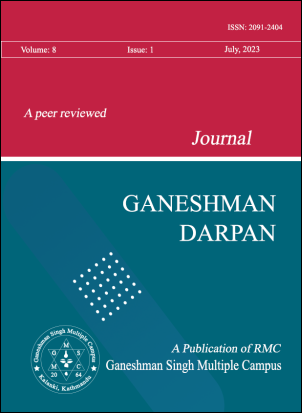Practicing Local Curriculum in Basic Level: As an Educational Innovation and Creativity
DOI:
https://doi.org/10.3126/gd.v8i1.57334Keywords:
Local Curriculum, Survey, Educational Development, Average Value, RespondentsAbstract
This study aims to investigate the practicing local curriculum at basic level schools through the educational innovation and creativity in Nepal under the teachers’ view. I applied quantitative research design, and positivist paradigm. In Kathmandu district's 25 public lower secondary schools, 125 respondents in the basic level teachers, were randomly selected for the sample (Five teachers from each school). Data collection was carried out using a self-created questionnaires that had 50 statements and five Likert-type response alternatives. The self-developed questionnaire's validity was verified by the opinions of experts, and reliability was established Cronbach's alpha, 0 .895. I prepared five factors according to loading components. According to research, practicing a local curriculum empowers individuals by acknowledging their own knowledge, skills, and expertise. It motivates students to participate actively in their education and community development. Practices can shape their own learning experiences by engaging with the local curriculum and choosing choices that match their interests and objectives.




